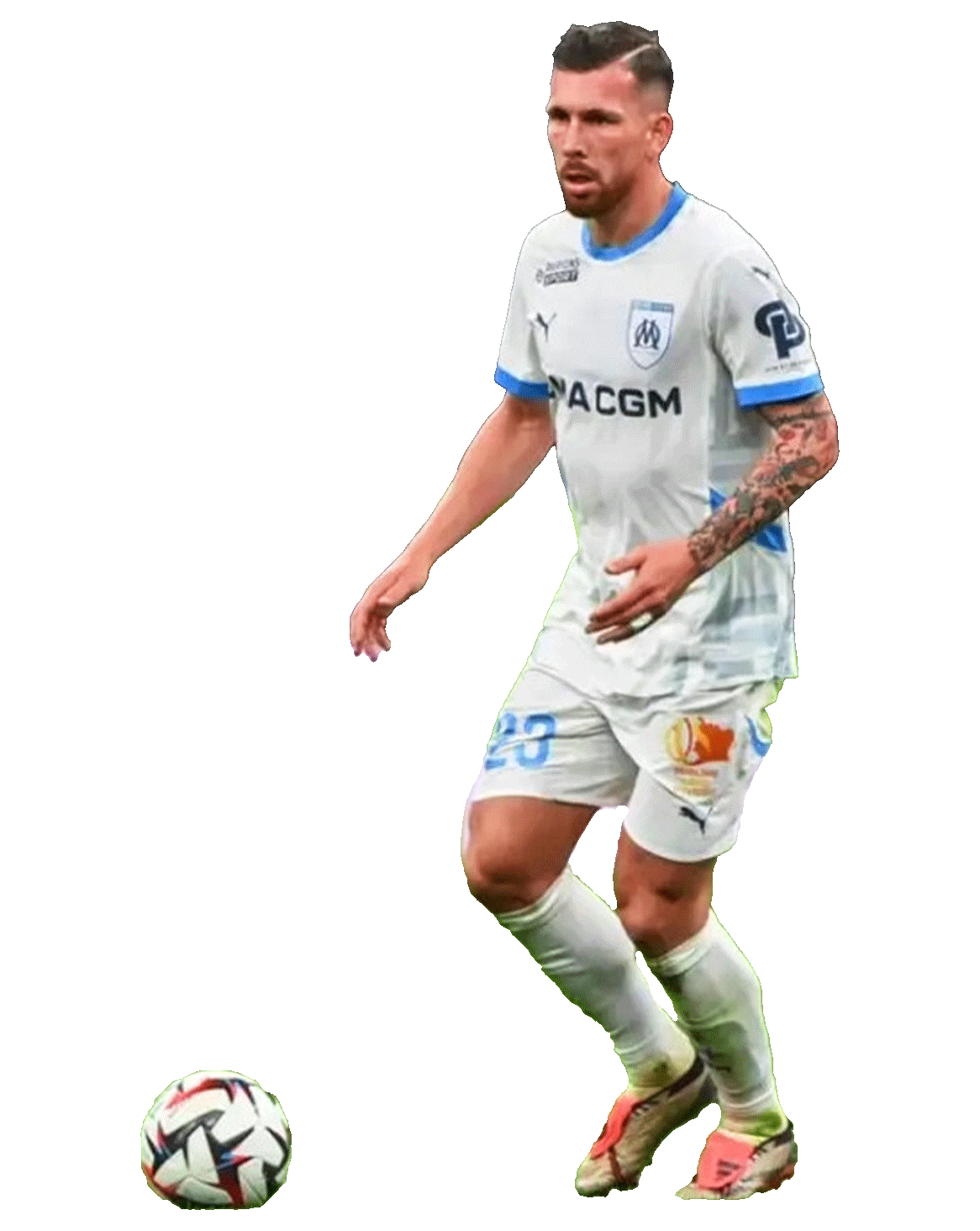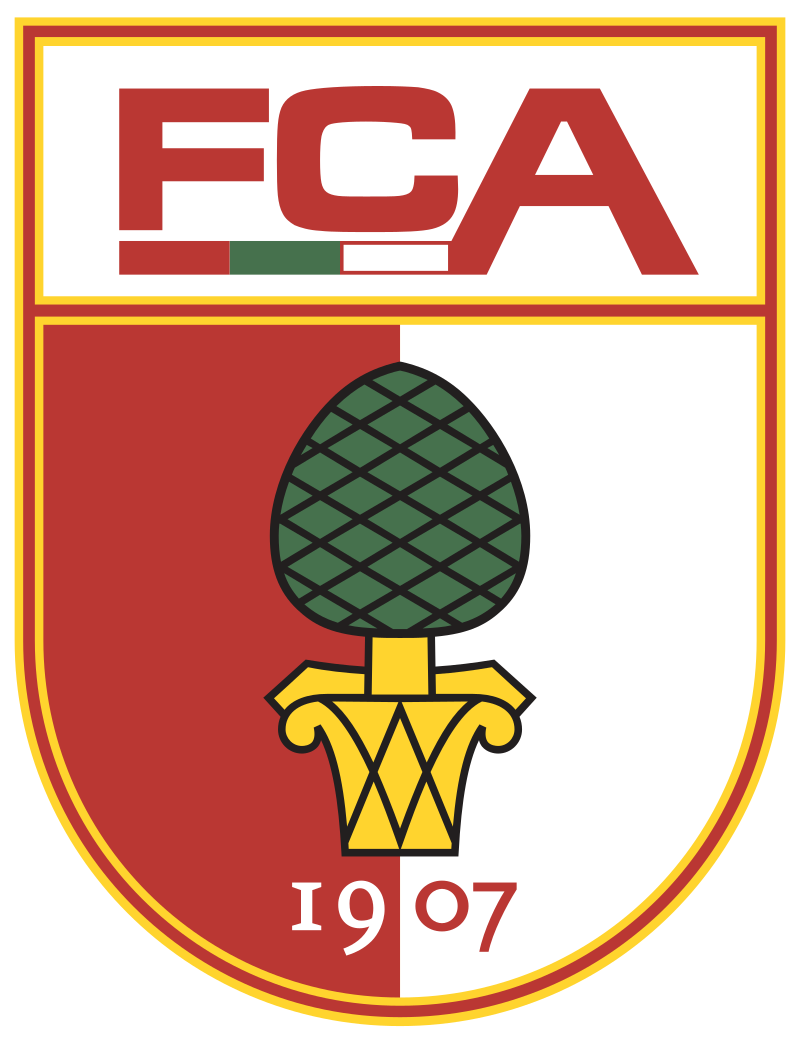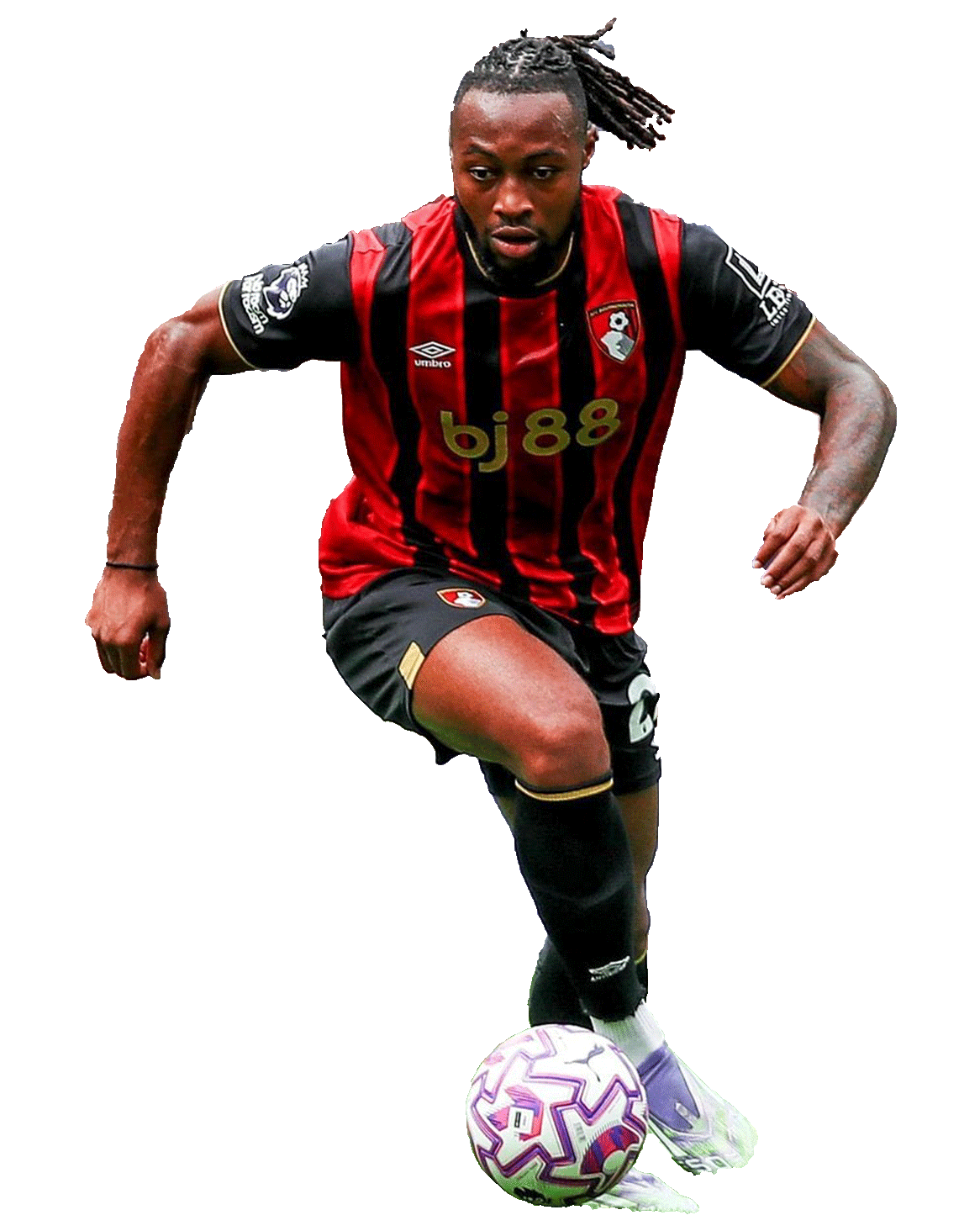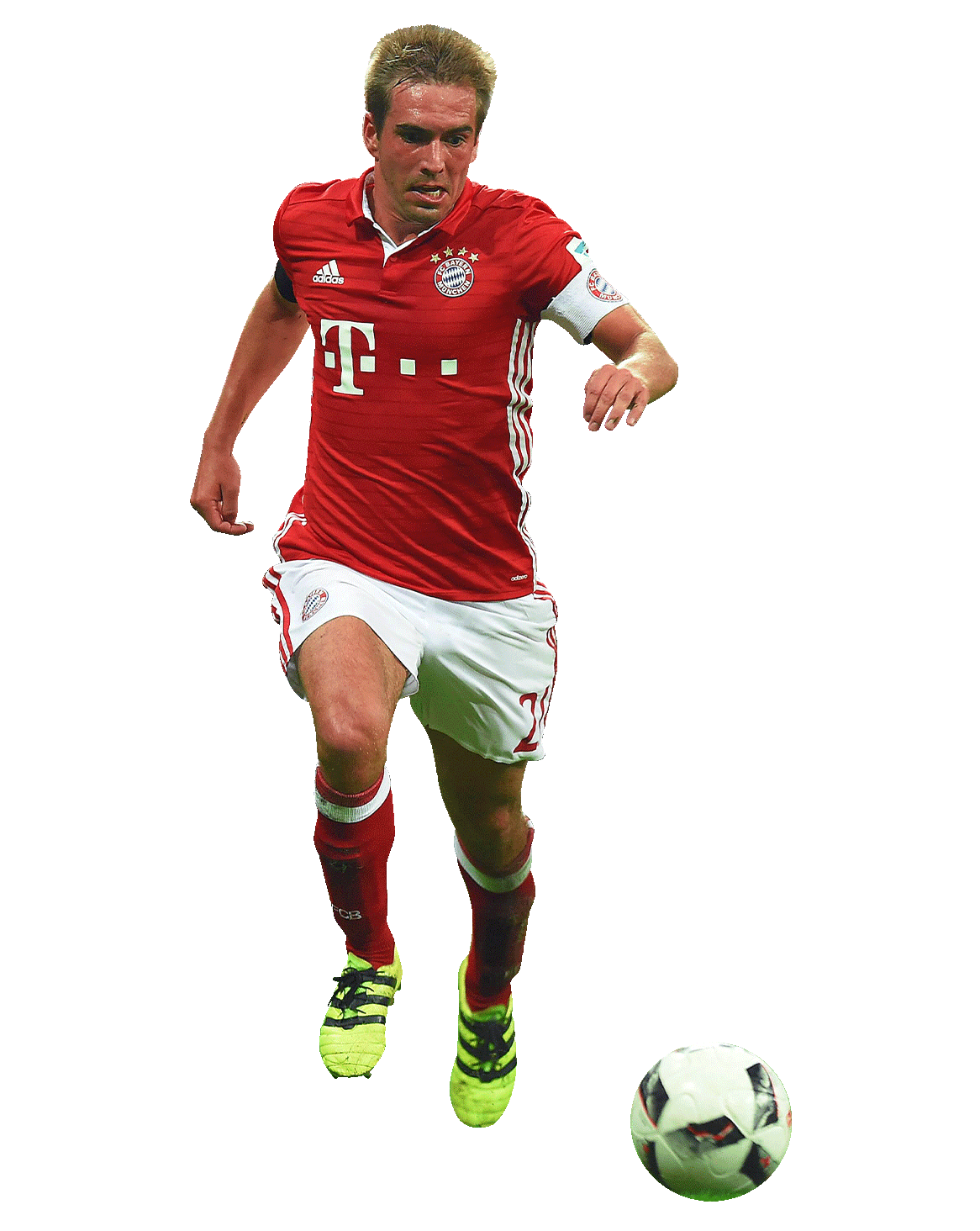


Pierre-Emile Højbjerg
~The Viking
Aug 05' 1995

Denmark
The Exhilarating Story...
Pierre-Emile Kordt Højbjerg was born on 5 August 1995 in Copenhagen, Denmark, to a Danish father and a French mother. (He holds French heritage via his mother). From a young age, he was drawn to football. His introduction to the game started when he joined local youth setups: first Skjold, then KB, and later Brøndby. As a child, he would train perhaps simply to chase a passion he felt deep within. His family life had its tensions and challenges. His father, Christian, would later struggle with stomach cancer, and in April 2014, when Pierre-Emile was still developing his career, his father passed away. The trauma of losing a parent so early, just as his professional life was picking up, left a wound he would carry even as he pressed forward. Transitioning from youth football to professional ranks is never easy, and Højbjerg’s journey was no exception. He moved to Bayern Munich in 2012, when he was still a teenager, leaving behind familiar surroundings in Denmark. At Bayern, he became the youngest player ever to play a Bundesliga match for the first team - debuting at age 17 years and 251 days. But breaking into an elite side like Bayern takes more than talent: consistency, mental strength, patience. While at Bayern, he had periods in the reserve team, occasional first-team appearances, and loan spells (to FC Augsburg, Schalke) when regular minutes were needed. Such moves are not only about adapting tactically, but also emotionally - dealing with distractions, uncertainties, changing environments. He had ambitions to represent Denmark’s senior team. That dream was entwined with his father’s hopes—he has said his father wished to see him don the national jersey. But fate intervened: his father died just before Pierre-Emile’s senior debut for Denmark. That loss was deeply personal and painful, and it was a moment that tested his resolve. Dealing with grief while trying to grow as a professional athlete is a delicate balance. In interviews, Højbjerg has been candid about how scoring his first goal for Denmark was bittersweet: he could not fully celebrate because the one person he wanted to see it was gone. He acknowledged that he struggled to give himself space to mourn, trying instead to “power through” in his career. But through that pain, he built inner strength. He allowed the memory of his father to become a motivator, an invisible companion in every match. He leaned on his mother, family, teammates, coaches, and mentors to support him during difficult times. In his words, his relationship with the national team became emotional, not just sportive. There was also a professional setback: being left out of Denmark’s squad for a World Cup. He described that moment as one of the most painful in his career, but also one that forced introspection, focus on small details, refining his mentality and work ethic. Instead of letting the rejection define him, he used it as fuel to become better. No great athlete is made in isolation. Along the path, Højbjerg had supporters: youth coaches in Denmark, mentors at Bayern, fitness staff, tactical coaches, teammates who pushed him. He often highlights how coaches like Kasper Hjulmand (Denmark coach) believe in emotional connections, giving time to players, caring personally as well as technically. Such support allows a player to bounce back from slumps, to open up about inner struggles, to remain human in intense arenas. His connection with teammates in Denmark, and the shared national identity, also kept him grounded. The way the Danish national team rallied after Christian Eriksen’s collapse is an example: it united players, coaches, nation. The bond of shared adversity gives strength in moments of doubt. As he matured, he became a leader himself - not by force, but quietly leading by example. In Marseille, he was named a captain or vice-captain early on. Others respect him not only for his performances, but for the resilience behind every match. Over time, his persistence paid off. At Southampton, he became a mainstay midfielder. He then moved to Tottenham Hotspur in 2020 and became a key figure in midfield, praised for his consistency, work rate and tactical awareness. Despite ups and downs, he held himself steady through criticism, pressure, and internal competition. In summer 2024, he joined Olympique de Marseille initially on loan, with a clause to make the move permanent, and in mid-2025 that clause was activated. His adaptation to Ligue 1 has been impressive: he has led in pass accuracy, interceptions, tackles, line-breaking passes - becoming central in Marseille’s structure. On the national side, he was named captain of Denmark after Simon Kjær’s international retirement in August 2024. His influence in the squad is now not just physical, but symbolic - a testament to journey and perseverance. Even champions face tests. In 2024, Højbjerg slipped down the pecking order at Tottenham, prompting his move to Marseille. In 2025, he’s settling into his permanent spot in Marseille’s midfield as an anchor and leader. He has also had moments of public controversy. In a Denmark friendly against Switzerland, he shoved a referee during a play, an impulsive act that stirred reactions. Even in such moments, athletes show their human side - frustration, pressure, emotion and how they manage aftermath is a measure of maturity. His performances in Ligue 1 have drawn praise: high pass success, touches, defensive recoveries, influence in transition - metrics that show he is impacting results, not just filling a role. The next chapters of his career remain open: new challenges in France, steering Denmark forward, evolving as a player and a leader. But the arc of his journey already speaks of transformation, resilience, and relentless ambition. Lessons for Young Players From Højbjerg’s life we can draw many lessons: Grief and adversity don’t stop dreams. Loss can become motivation if acknowledged rather than denied. Resilience and patience matter. Breakthroughs may come late. Support systems are essential - coaches, mentors, teammates, family. Growth mindset - setbacks are not failures but opportunities to refine. Emotional intelligence - managing feelings under pressure is part of being a professional athlete. Leadership is earned - by behavior, consistency, sacrifice. A platform like 8lete can help young players translate these lessons into daily habits. Through mentorship programs, data analytics, mental coaching, structured training regimes, and community support, 8lete can guide players in navigating both visible challenges (fitness, skills, tactics) and invisible ones (mental health, career decisions, setbacks). By integrating stories like Højbjerg’s into its curriculum, 8lete can help aspirants see that even when the path is rocky, the journey is real, and success is not just about talent - it is also about character, support, grit, reflection, and vision. How 8lete Can Empower Aspiring Athletes Personalized growth plans: Using data and individual profiling, 8lete can help players map physical, technical, mental, and tactical milestones. Mentorship and story sharing: Connecting youth with experienced professionals (or using narratives like Højbjerg’s) gives context to struggles. Emotional resilience training: Workshops, counseling, peer groups to help manage grief, criticism, imposter syndrome. Performance analytics & feedback: Objective metrics help players see small improvements, stay motivated. Networking & exposure: 8lete can help promising players get visibility, trial opportunities, linkage to clubs, agents, academies. Continuous learning mindset: Encouraging reflection, adaptation, goal setting - seeing failures as soft pivot points. In the end, platforms like 8lete are not magic shortcuts - they are scaffolding to support young players in walking their own journeys. Pierre-Emile Kordt Højbjerg’s life is a story of talent met with heartbreak, persistence through transitions, and eventual leadership. From Copenhagen to Munich, England to Marseille, he has faced loss, omission, criticism, and pressure - yet he continues to rise. His journey reminds us that behind every jersey number lies a human story of struggle and strength. To every young footballer reading this: talent is only half the battle. The rest is belief, discipline, humility, support, and refusing to quit when adversity strikes. With structures like 8lete, you don’t have to walk alone. You can walk wiser, faster, stronger and perhaps one day, play your dream match with gratitude for every step along the way.
“
99% sacrifice for the 1% of winning.

Career
Last updated: Sep 28' 2025
Bayern Munich
- Career: 2012–2016
- Appearances: 25

Augsburg
- Career: 2015 (Loan)
- Appearances: 16
- Goals: 2

Schalke 04
- Career: 2015–2016 (Loan)
- Appearances: 30

Southampton FC
- Career: 2016–2020
- Appearances: 134
- Goals: 4

Tottenham Hotspur
- Career: 2020–Present
- Appearances: 146
- Goals: 8

Denmark Football
- Career: 2014–Present
- Appearances: 90
- Goals: 11
Achievements
Bayern Munich
- 2× Bundesliga
- 1× DFB-Pokal
- 1× FIFA Club World Cup
- 1× UEFA Champions League
Southampton
- 1× EFL Cup runner-up
Tottenham Hotspur
- 1× EFL Cup runner-up
Individual
- 1× DBU's Talentpris – Danish U-17 Player of the Year
- 1× Danish Talent of the Year – Spillerforeningen
- 1× Danish Talent of the Year
- 1× UEFA European Championship Team of the Tournament
- 1× Danish Football Player of the Year

Celebrating
Tony G


Football
Dec 10' 2025
Celebrating Humility & Discipline Anthony Gordon.
Born on 24 February 2001 in Liverpool in a working-class neighbourhood, Anthony Michael Gordon entered the world with a dream. One that many children in football-mad Liverpool silently nurture. His parents, Nadine Gordon and Keith Gordon, can hardly have imagined just how high their boy would climb, starting from street games in Kirkdale to ripping defences in the Premier League. Anthony grew up in a humble household. His family was supportive, but resources were limited. Nadine and Keith sacrificed much time, money, comfort to fuel his passion for football. Keith often coached Anthony in the evenings, after work, while Nadine drove him to training and matches. Their belief never wavered, even when the path ahead looked uncertain. Despite their support, Anthony’s early journey was not easy. He began at the grassroots club Whiston Juniors, then spent time on the books of Liverpool FC as a youngster. But when that door didn’t open, he had to pivot. He joined the academy of Everton FC at age 11 - a significant step. That change meant adapting to new environments and proving himself all over again, but Anthony’s resilience shone through. Breaking into professional football is rarely smooth. Anthony made his senior debut for Everton in December 2017, in a Europa League match - an accomplishment that many dream of, but few achieve at the age of 16. Yet for all the promise, there were challenges: long hours of training, waiting for opportunities, moments of doubt, and the pressure of expectations from both club and self. He persevered. Over the years, Anthony gradually earned his place, pushing through youth teams, under-23 matches and substitutes' benches until he became a regular. His growth was steady, shaped by hard work, dedication, and an unquenchable hunger to improve. In January 2023, Anthony made a bold leap: he signed for Newcastle United FC. It was a statement. A chance to push boundaries, fulfil potential, and rewrite his story. At Newcastle, the environment, coaching, and his own commitment came together. The move proved transformational - he began to shine on a bigger stage, demonstrating speed, creativity and attacking flair that quickly caught the eye. But success wasn’t handed on a platter. Even at Newcastle, Anthony faced challenges: adjusting to new demands, high expectations, and pressure. What helped was the network around him: coaches, senior teammates, support staff, and above all, the values instilled by his parents - humility, discipline, and mental strength. Family sacrifices, sleepless nights on training fields, and unwavering belief in him began to pay off. His rise did not stop at club level. With notable performances, he earned a call-up to the senior squad of England national football team. In March 2024, Anthony made his debut against top opposition. It was a moment that vindicated years of struggle, rejection, injury risks, and constant competition. Today, Anthony Gordon stands as proof that talent alone is not enough. What matters is the journey: humble beginnings, persistent effort, belief, support, resilience and seizing opportunities when they arrive. His story resonates deeply especially for young players dreaming big but lacking access, connections, or resources. For a platform like 8lete - which aims to nurture young athletes, guide their growth and offer supportive structures. Anthony’s journey offers powerful lessons. 8lete can provide mentorship, training plans, mental coaching, and emotional support that mirror what Nadine and Keith gave Anthony. 8lete can bridge gaps for those whose families might not afford expensive training, helping them sharpen both skill and mindset. In a world where many abandon their dreams due to lack of support or guidance, 8lete can be the missing pillar - offering structured pathways, peer support, coaching, and motivation. If a boy from working-class Liverpool, with humble roots and loving parents, can rise to shine on the world stage, then thousands like him elsewhere around the globe.
READ MORE

Celebrating
Semenyo


Football
Dec 05' 2025
Celebrating Grit & Humility Antoine Semenyo.
Born on 7 January 2000 in London, England, Antoine Serlom Semenyo carries the hopes of Ghanaian heritage through his father, and European roots through his mother. His father, Larry Semenyo, was once a midfielder for Okwawu United in Ghana’s domestic league, while his mother holds French nationality. Growing up in a family with deep football roots, Antoine also has a younger brother, Jai Semenyo, who has followed in his footsteps into professional football. From a young age, Antoine played grassroots football in South London. He wasn’t part of any high-profile academy rather, he played in local Sunday-league teams and for lower-tier youth clubs. This early path, while humble, helped him nurture natural talent and love for the sport. But his early ambitions met harsh resistance. Between the ages of 14 and 15, Antoine faced repeated rejections from top English clubs including Arsenal FC, Tottenham Hotspur, Crystal Palace FC and others. An especially painful moment came after an eight-week trial at Crystal Palace, where he was ultimately told he wasn’t good enough. That rejection hit him hard so much so that he temporarily quit football altogether. During this dark phase, Antoine’s family became his rock. Larry and his wife provided emotional support and encouraged him not to give up on his dream. Their faith in him laid the foundation for his comeback. At 16, summoned by determination and with the encouragement of his parents, he enrolled at the South Gloucestershire and Stroud College (SGS) near Bristol. There, under the guidance of coach Dave Hockaday, and with intense self-training and discipline, Antoine transformed - shedding earlier doubts, reshaping his fitness, and rediscovering his passion. His breakout season at college where he reportedly scored around 50 goals - caught the attention of pro scouts. In 2017 he signed for Bristol City F.C.’s academy. It was a small step, but a meaningful one: from Sunday-league obscurity to structured youth development. After progressing through youth and U23 setups and excelling on loan spells at lower-tier clubs, Antoine made his professional debut in January 2018. At Bristol City, he gradually proved himself. By 2021 he had earned “Young Player of the Year” and started to draw serious interest. In January 2023, he secured a move to AFC Bournemouth for around £10 million - a turning point that would propel him into the spotlight of the Premier League. Internationally, Antoine embraced his Ghanaian roots fully. In May 2022 he received his first call-up to the Ghana national football team (Black Stars). His first international goal came in a friendly before the 2022 World Cup. Representing Ghana was more than just a career milestone - it was a dream rooted in heritage and identity. But perhaps the defining chapter of his journey has unfurled in the 2025-26 season. Under manager Andoni Iraola at Bournemouth, Antoine has evolved into one of the most dangerous wingers in the league. His pace, two-footed finishing, dribbling and athleticism make him a constant threat. As of late 2025, he has already scored six goals and provided three assists - directly involved in over 80% of his team’s Premier League goals this season. Experts now consider him a candidate for “Premier League’s most valuable player.” In November 2025, despite facing racist abuse from the stands during a match at Anfield, Antoine responded not with despair but with performance: netting crucial goals and playing with the same intensity. Off the pitch, he has spoken about faith, family values, humility - foundations that have helped him stay grounded through success and adversity alike. Antoine Semenyo’s biography is not just of talent, but of resilience, reinvention, and faith. He transitioned from a rejected trialist at 15, a college footballer uncertain of his future, to a Premier League star representing his ancestral homeland. Throughout, his family especially his parents played a vital role. Coaches like Dave Hockaday and mentors at Bristol City gave him the structured environment and belief he needed. Loan spells, hard work, strict self-discipline, and refusal to give in to discouragement shaped his character. What his journey means and how 8lete can empower young dreamers At 8lete, we believe in identifying raw passion, nurturing it with structure, and guiding young athletes toward disciplined growth. Antoine’s story exemplifies exactly this. His rise shows that: - Early setbacks don’t define potential. - Family support and rooted identity matter. - Structured training environments and mentorship can transform raw talent. - Discipline, physical fitness, mental resilience, consistent work ethic can overcome early rejection. - Opportunity often comes to those who persist, adapt, and believe in themselves. For young players - whether in Ghana, or anywhere else - 8lete aims to build that supportive ecosystem. We want to offer mentorship, consistent coaching, holistic development (technical, physical, mental), and opportunities to shine when others may have given up. Just as Antoine turned a “no” into a golden “yes,” 8lete stands ready to help turn dreams into reality. Antoine Semenyo’s journey is a testament to grit, humility, and destiny - a beacon for every young athlete hoping to rise beyond circumstances.
READ MORE

Celebrating
Mr. Reliable


Football
Nov 11' 2025
Celebrating Dreams & Support Philipp Lahm.
When Philipp Lahm stepped onto the pitch as a young boy, he perhaps did not yet imagine how far his journey would carry him. Born on 11 November 1983 in Munich, West Germany, he grew up in a football-rich environment, one that set the foundation for a career defined by discipline, intelligence and quiet leadership. His parents played a subtle but essential role in that foundation. His father, Roland Lahm, had played amateur football with the local club FT Gern München, and his mother, Daniela Lahm, worked in the youth department of the same club. Although the details of his family’s finances aren’t spotlighted, the raw fact is that Philipp grew up in a typical Munich neighbourhood, loved the game of football, and was surrounded by people who valued sport and community. In his youth, Lahm joined FT Gern at a young age, motivated by his desire to succeed, and by age eleven he had already moved into the youth ranks of FC Bayern Munich - a massive step for any young player. But his journey was far from linear. He faced setbacks: one major one was a torn cruciate ligament just before his full return to Bayern’s first team in 2005, which forced him into rigorous rehabilitation and challenged his patience and mental strength. That moment, like many young players will encounter, highlights the essential truth: talent alone is not enough. The right mindset, the recovery, the humility and willingness to work through injury are just as critical. Lahm also had choices that tested his character. For example, in 2008 he reportedly rejected a lucrative move abroad to join Barcelona because he valued loyalty and wanted to grow at Bayern. This decision reflected something deeper: a commitment to build success where he started, rather than chase fame elsewhere. He trusted his process, trusted his club, and trusted his team. From this we learn the power of aligning purpose with place. During his career, he relied on many helpers: from his youth coaches who recognised his promise; to team-mates and mentors at Bayern and with Germany; to the support of his family and club behind the scenes. His long-time manager Pep Guardiola even called him “perhaps the most intelligent player I have ever coached”. These supporters enabled him to transition from youth prodigy to full-back, to national team captain, to world champion in 2014. Lahm’s rise isn’t about headline-grabbing flamboyance. It’s about consistent excellence, adaptability (he played left-back, right-back and even defensive midfield when needed) and quiet leadership. He became one of Germany’s most capped defenders, led his country to the 2014 FIFA World Cup trophy, and enjoyed a storied club career with over a decade at Bayern Munich. For young players following their dreams, this story offers several key take-aways: - Embrace your environment: Lahm didn’t wait for perfect conditions; he built within what he had (Munich, FT Gern, Bayern youth). - Work through setbacks: Injury, competition, positional change didn’t stop him — they reshaped him. - Align club, role, values: He stayed where he believed his development would thrive. - Leverage your support network: Coaches, mentors, family matter — nobody reaches the top alone. - Adapt and lead, even quietly: Leadership isn’t always loud; consistency, intelligence and trust can be just as powerful. Here is where the platform 8lete enters the picture. For young athletes who are chasing big dreams, 8lete can act as the bridge between raw potential and realised success - much like the network and environment Philipp Lahm found. Through structured training, mentorship, digital tools, club-player connectivity, and personalised pathways, 8lete empowers young athletes to build the kind of foundation Lahm built: a strong support system, clarity of purpose, adaptability, and performance resilience. Imagine a young footballer in Mumbai who sets his sights high and uses 8lete’s ecosystem to access skill development, mental resilience modules, performance tracking, mentor interactions, and peer community. It replicates on a micro-level what Lahm lived on a macro-level. In our increasingly competitive world, talent alone won’t suffice. Lahm’s story emphasises that: mindset, resilience, support, loyalty, and adaptation are equally important. And when you combine those with the right platform (8lete) to guide your growth, you multiply your chances of achieving the dream. As we draw this narrative to a close, remember: on 11 November 1983 a boy was born in Munich with big dreams and through hard work, support, smart decisions and perseverance he became a legend. That same blueprint is available to you now via 8lete. You may be in a different city, under different circumstances, but the principles remain the same. Your journey starts today. Use your support network. Accept the setbacks. Adapt your role. Stay loyal to your growth. Lead by example. And let 8lete help you transform from potential into performance.

